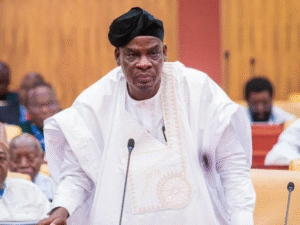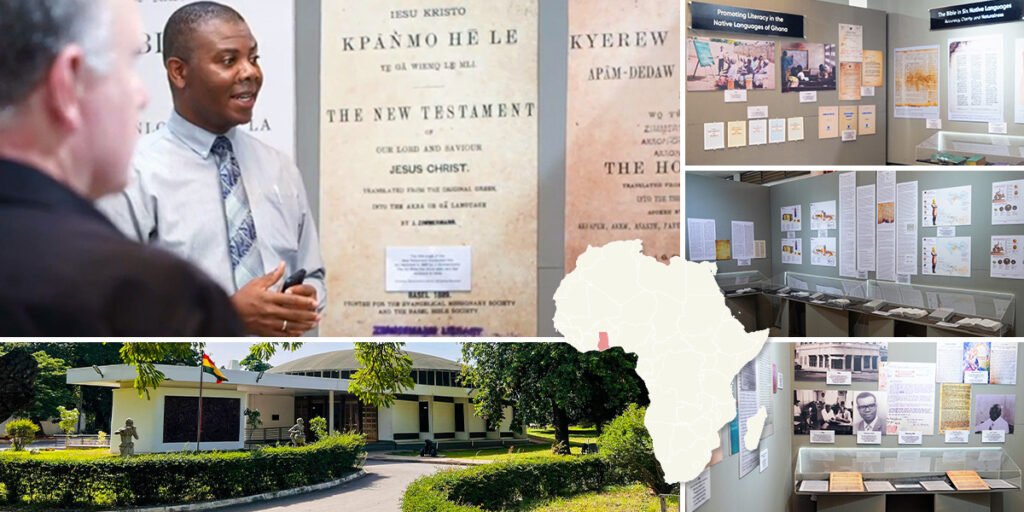
Image Source: https://www.jw.org/en/news/region/ghana
In a world where languages are rapidly fading under the pressure of globalization, it is refreshing to see organizations actively working to preserve and promote local languages. One of such organization is Jehovah’s Witnesses, who have made remarkable strides in translating religious materials into various Ghanaian languages. As this effort fosters deeper spiritual understanding, it also contributes to the preservation and revitalization of the rich linguistic heritage of Ghana. Through their commitment, Jehovah’s Witnesses are ensuring that future generations can connect with their cultural roots while engaging in their faith in a language that resonates with them on a personal level.
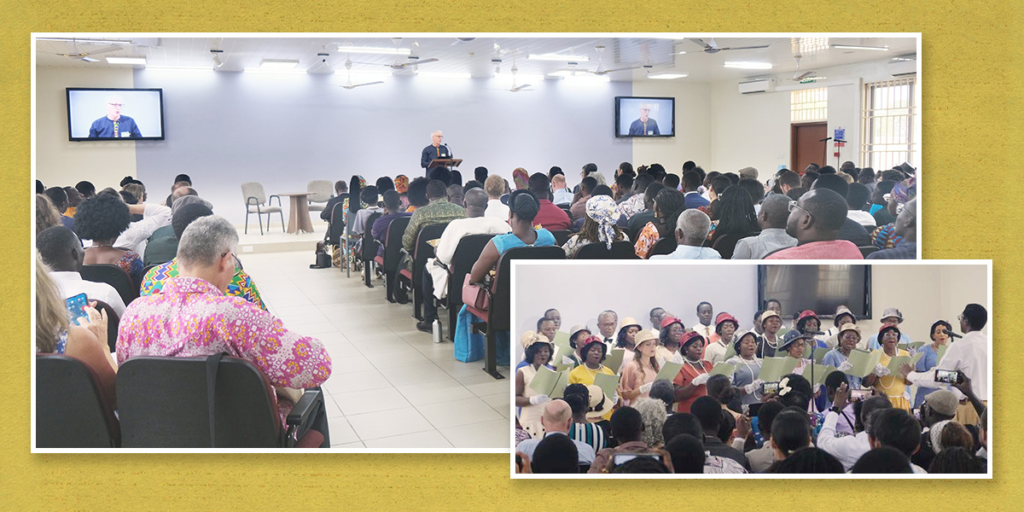
Jehovah’s Witnesses, who celebrated 100 years of existence in Ghana in November 2024, have played a major role in the promotion of Ghanaian languages and culture. Through their dedication to Bible translation and the spread of the good news, they have significantly contributed to linguistic and cultural preservation. After Claude Brown’s arrival in the Gold Coast in 1924, the Kingdom message quickly reached different communities, leading to the formation of Bible study groups.
The history of Jehovah’s Witnesses’ translations into Ghanaian languages dates back to 1937 when they first began translating Bible-based publications in the Gold Coast, now Ghana. As the number of believers grew, so did the need for materials in local languages, enabling more Ghanaians to understand and embrace Bible teachings in their mother tongues. These early translation efforts did not only strengthened the faith of many but also contributed to the preservation and development of indigenous languages.
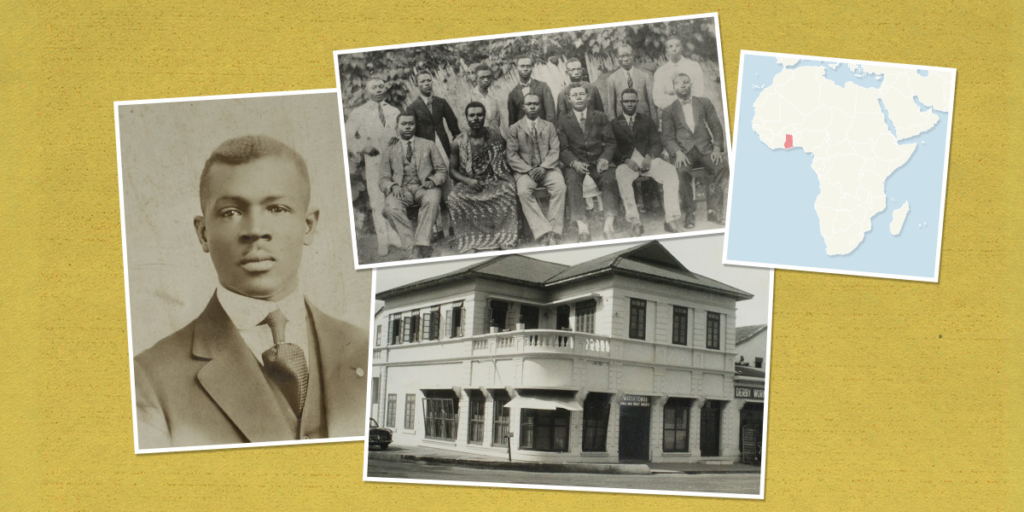
The establishment of the first branch office in 1948 further enhanced the translation efforts, ensuring that literature and teachings were accessible to a wider audience. With the arrival of Gilead-trained missionaries like George Baker and Sidney Wilkinson, the number of Kingdom proclaimers rapidly increased, creating a greater demand for Bible-based materials in Ghanaian languages. Over the decades, Jehovah’s Witnesses have remained committed to this cause, translating publications, tracts, and Bible teachings into various local languages. This effort has empowered countless Ghanaians to engage in spiritual study using the language they understand best, reinforcing the cultural and linguistic heritage of the nation.
As of today, Jehovah’s Witnesses, through their dedicated translation team, have successfully translated Bible-based materials into 13 Ghanaian languages. These include Ahanta, Akuapem Twi, Asante Twi, Fante, Dagaare, Ewe, Dagbani, Dangme, Ga, Nzema, Gurene, Sehwi, and Ghanaian Sign Language. These translations are available in various formats, including articles, videos, and audio content, ensuring that people from diverse linguistic backgrounds can access spiritual teachings in their native languages.

One remarkable aspect of these translations is the inclusion of two Ghanaian languages, Ahanta and Sehwi, that do not have official educational status in Ghana. In Ghana, languages with educational status are those approved for study in schools based on government policy. Despite this, Jehovah’s Witnesses have made Bible-based materials available in Ahanta and Sehwi, both Kwa languages spoken in the Western and Western North Regions of Ghana, ensuring that speakers of these languages can also access spiritual teachings in their mother tongue.
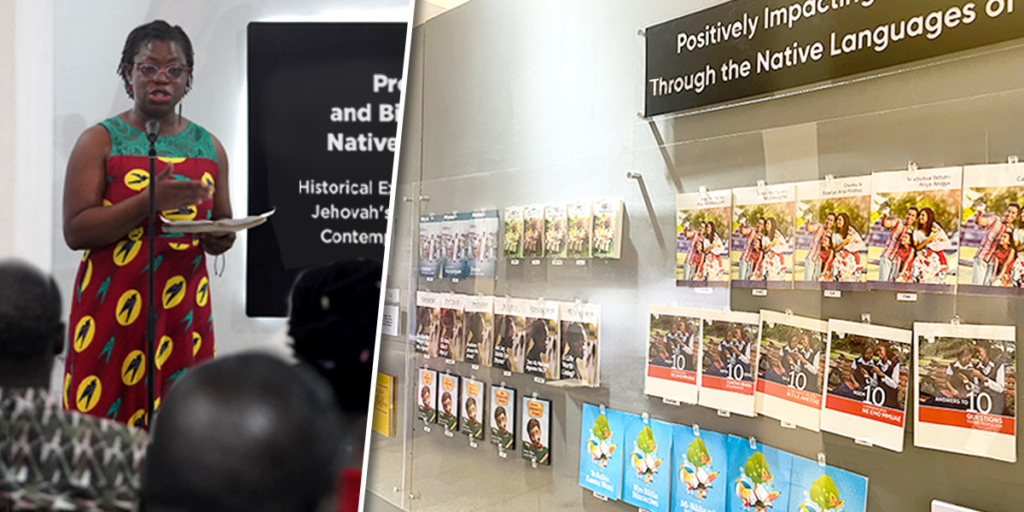
As a result of their efforts, the translation work of Jehovah’s Witnesses was highlighted at the Ghana National Museum. From April 11 to June 11, 2024, the museum in Accra hosted a special exhibit titled “Promoting Literacy and Bible Education in the Native Languages of Ghana.” This exhibition showcased the significant role of Jehovah’s Witnesses in translating Bible-based materials into Ghanaian languages, making spiritual education more accessible to local communities. More than 1,300 people visited the exhibit, gaining a deeper appreciation of how these translations have contributed to literacy, cultural preservation, and Bible education across the country.
To further enhance their efforts in promoting Ghanaian languages, Jehovah’s Witnesses have inaugurated a new translation centre in Kumasi, Ashanti Region. It is located in Atasomanso. This office aims to overcome language barriers by providing educational and Bible-based publications in Twi and Ghanaian Sign Language, ensuring that more people can access spiritual teachings in their native language.
Today, with nearly 160,000 active Witnesses in Ghana, the branch office continues to support the translation of Bible-based materials. This dedication to language accessibility has not only facilitated the spread of the good news but also contributed immensely to the recognition and appreciation of Ghanaian languages. Through their efforts, Jehovah’s Witnesses have played a significant role in preserving Ghanaian languages, promoting literacy, and ensuring that people can access spiritual teachings in their mother tongue, a legacy truly worth celebrating.
Editor: Ama Gyesiwaa Quansah
